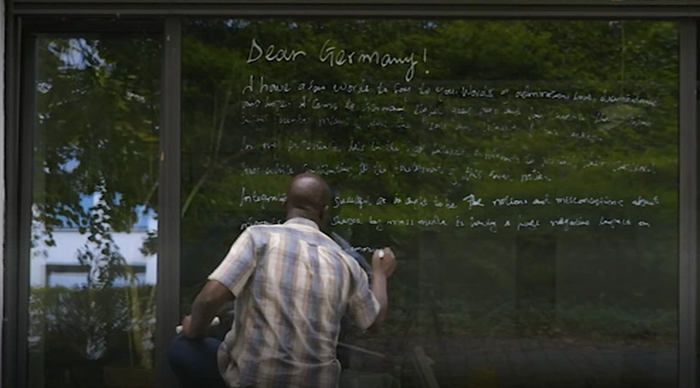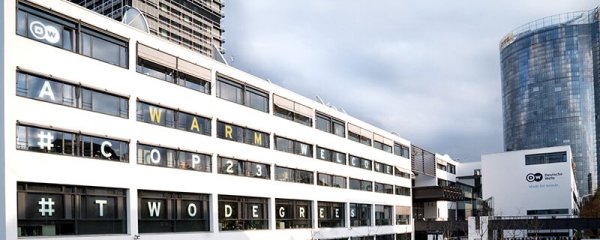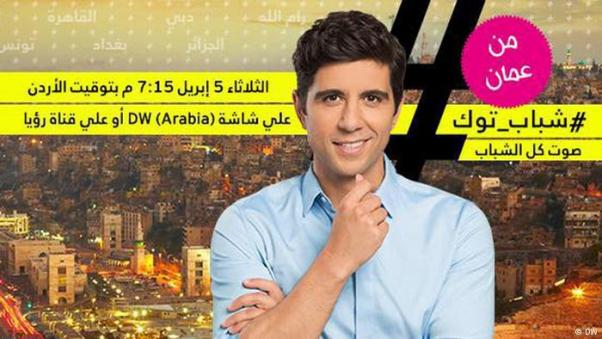DW battles fake news with new verification platform
DW recently introduced a new media verification platform, Truly.Media, that enables media producers and civil society groups to quickly verify news reports circulating on social media. The platform was developed in partnership with the Greek software development company Athens Technology Center (ATC).
Truly.Media’s first major client is the world’s leading human rights advocacy group, Amnesty International (AI).
“When inconvenient truths prompt public officials to cry ‘fake news’, or when content posted on social media purports to show something it doesn’t, Amnesty International needs to be ready to respond, based on rigorous, methodical research and verification methods,” said Tirana Hassan, Amnesty International’s Crisis Response Director, in a statement on AI’s website.
When important news stories go viral on social media, there is a flood of information that is not always accurate, or even worse, manipulated. Truly.Media works by enlisting teams of journalists and editors, along with automation tools, to verify information in real time.
It was recently introduced to the European Parliament in Brussels, where Members of Parliament welcomed it as an impressive tool that will have real benefits for poltical discourse. As the platform shows positive results with AI, more clients are sure to follow.
Truly.Media has been in development since 2016, and was produced with the support of the innovation fund from the Google Digital News Initiative and EU research financing.
DW shows the world why ‘climate action needs media freedom’
At the COP23 in Bonn, DW raised awareness of the important role of media in informing the public about the complicated issues surrounding climate change. During the UN climate conference, DW Akademie held multiple workshops organized around the motto “climate action needs media freedom.”
During the conference dozens of journalists were invited to Bonn to connect with climate activists and other journalists from around the world to share ideas and expertise. Participants learned about how to report on climate change issues and increase coverage in affected regions.
DW Akademie emphasized how the media provides an essential platform for dialogue in finding sustainable solutions to social problems caused by climate change.
Ten journalists from pacific islands were trained by DW Akademie in advance of COP 23 to report on the conference for media outlets at home. Another multimedia training brought 13 journalists from the Fiji-Islands, Papa-New Guinea, Samoa and other pacific states to Bonn for an exchange of expertise on climate change reporting. Other workshops brought journalists from Somaliland, Myanmar Sudan, Namibia and Jordan.
DW also launched a multimedia project called Kids4climate, which is intended to raise awareness of climate issues among children. It works by providing examples of activities that kids have initiated such as planting trees or organizing a “ride your bike to school” day. The videos also feature activities that kids and families can do together.
And on the sidelines of COP23, DW brought together the mayors of Pretoria in South Africa and Pittsburgh, Pennsylvania in the USA for a radio discussion broadcast on DW’s World in Progress. They spoke about similarities between their two cities in looking toward the future and shed light on how climate change is a problem that unites cities around the world.
The discussion provided an example of how the media can provide a platform for public officials to openly exchange ideas on how to make their communities more sustainable.
Market roundup: November 2017
Shababtalk, DW’s talk show for Arab youth, was in Mauritania for a special co-production of Shababtalk on the road. The episode produced in cooperation with local broadcaster Sahel TV, focused on challenges being faced by young Mauritanians like joblessness, migration and political radicalization. Shababtalk on the road brings the discussion to the audience and gives a platform to young people across the Arab world to talk about issues affecting their lives.
DW has more partners in the Gambia after a successful fifth edition of the live debate format, The Migration Dilemma, in the capital Banjul. DW’s expanded cooperation with its event partners, which include Gambia’s only TV broadcaster, GRTS and the largest radio broadcaster Paradise FM. New DW partners in the Gambia include the country’s most popular social media sites Eye Africa and Fatu Network.
Awards
DW’s radio and podcast format, Living Planet, won an Association of International Broadcasting (AIB) award for the production “Road to renewables.” The jury said the show was a “must-listen” radio provided “deep insights into the challenges presented by climate change and renewable energy. The prize was awarded in the category, Continuing News Coverage – Audio.
At the 19th Eyes and Ears awards, the trailer campaign for the DW Breaking World News App took first prize for the “Best On-air programming campaign: News & Information.”
DW gives a voice to refugee journalists

Dear Germany, a new series from DW, portrays five journalists from Syria, Afghanistan, Pakistan, Azerbaijan and Uganda who came to Germany as refugees and goes inside the challenges they face integrating into German society.
The series gives a realistic portrayal of what life is like for those who have left everything behind to come to Germany. By focusing on individual storytellers, DW can help dispel stereotypes and fight negative generalizations of refugees.
Moses Bokorait came to Germany from Uganda eight years ago after his work as an investigative journalist made him a target. The 34-year old Afghan journalist Shakila Ebrahimkhil lost her husband and five colleagues to terrorism.
All of the show’s protagonists are trying hard to adapt to life in Germany and be accepted by society. They find that Germany is both a safe harbor and a tough place to make a living. Refugee journalists often have a difficult time finding work – even after they have learned the language. But by using a video-blog format, the series plays on the storytelling strength of the protagonists.
The series is being produced in English, French and Arabic. DW’s partners on Dear Germany include the France Medias Monde, Italy’s ANSA and a website funded by the EU InfoMigrants. DW also offers a wide range of information and resources for refugees coming to Germany that have been used millions of times in the past two years.
Market roundup: October 2017
Covering the 2017 German Federal Election from September 20 to 26, DW worked with 36 partners from around the world in English, Arabic and Spanish. Televising a total of 116 segments in cooperation with broadcasting partners, DW was able to provide comprehensive reporting on the German election to audiences around the world.
Partners included NewsX, one of India’s largest news broadcasters, Joy News in Ghana, the Australian public broadcaster ABC and the pan-Latin American broadcaster based in Colombia, NTN24.
Asia
DW is available on Thailand’s largest mobile provider AIS (Advanced Info Service) on the IPTV service AIS-HomePlus. The new partnership brings DW’s English-language programming to a combined 1.7 million subscribers. DW also has a new partner in Lahore, Pakistan. The cable station Max-1 is broadcasting DW’s English-language TV to 18,000 households in Lahore’s business district and education centers.
DW’s English-language channel is now available on the popular South Korean OTT box Nosegay. Vietnamese partner HTS-TMS extended its partnership with DW and acquired DW in HD.












Feedback